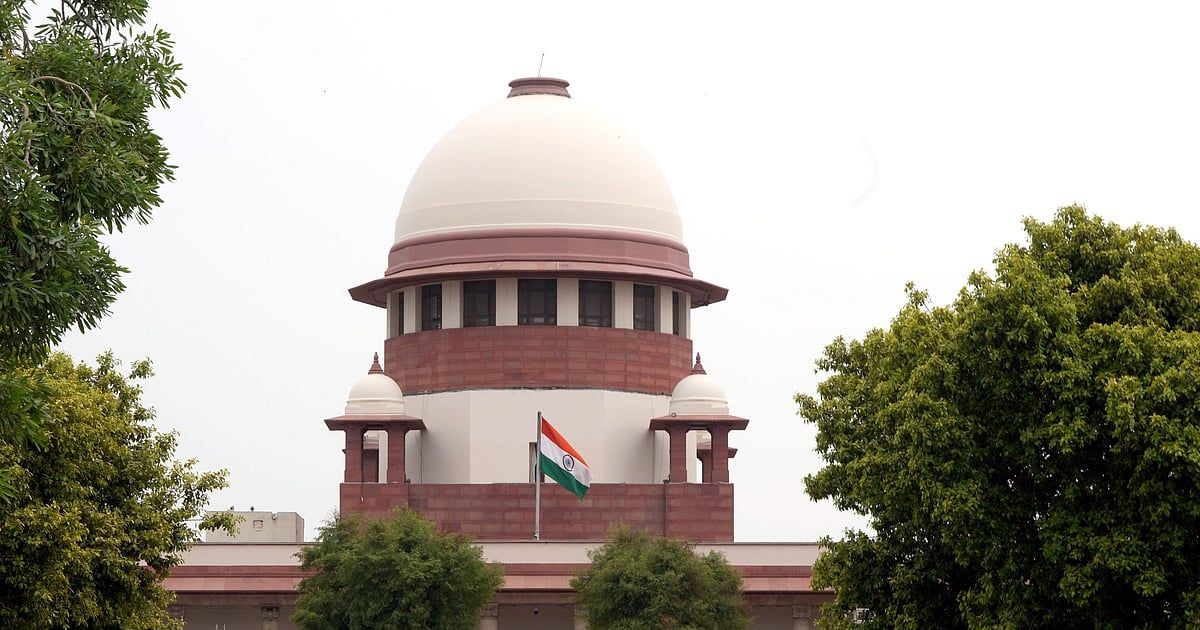 |
|
The Supreme Court of India is currently reviewing a bail plea submitted by a former Aam Aadmi Party (AAP) councillor implicated in the 2020 Delhi riots. This individual is also reportedly contesting the upcoming Delhi elections, adding a significant layer of political complexity to the legal proceedings. The court's involvement highlights the ongoing legal battles stemming from the widespread violence that occurred in February 2020, leaving a lasting impact on the city and its political landscape.
The bench, comprising Justices Pankaj Mithal and Ahsanuddin Amanullah, has requested a formal response from the Delhi Police regarding the bail application. This request underscores the seriousness with which the court is approaching the matter, emphasizing the need for thorough investigation and due process. The justices' decision to seek further information before making a ruling suggests a cautious approach, weighing the potential implications of granting bail to an individual facing multiple charges related to serious offenses.
A notable detail in this case is that the accused has already been granted bail in nine out of ten cases related to the 2020 riots. This fact raises questions about the nature of the charges in the remaining case and the potential reasons behind the continued detention. The differing outcomes across the multiple cases may indicate variations in the evidence presented, the severity of the alleged crimes, or the court's assessment of the risk of flight or recurrence of offenses. Understanding these discrepancies is crucial in evaluating the merits of the current bail plea.
The involvement of a former AAP councillor adds a layer of political intrigue to the situation. The upcoming Delhi elections inevitably cast a shadow over the proceedings, prompting speculation about the potential influence of political affiliations on the legal outcomes. While the judiciary strives for impartiality, the proximity of the election may unintentionally invite scrutiny and raise concerns about political motivation. It is imperative that the legal process remains independent and unaffected by external political pressures.
The 2020 Delhi riots remain a sensitive and complex issue with far-reaching implications for the city's social fabric and political stability. The ongoing legal proceedings, including this specific bail plea, serve as a crucial reminder of the lingering consequences of the violence. The Supreme Court's intervention in this case underlines the importance of ensuring justice and accountability, while navigating the intricate interplay between law, politics, and public perception. The outcome of this bail application will undoubtedly be closely watched by all stakeholders, and may have implications for similar cases arising from the same event.
Furthermore, the case highlights the challenges faced by the judicial system in balancing the rights of the accused with the need for public safety and accountability. The courts are tasked with ensuring a fair trial while simultaneously mitigating the risk of further unrest. The delicate balance between these often competing interests demands careful consideration and a measured approach. The decision of the court will not only impact the individual's freedom but also contribute to the broader legal framework governing cases involving serious violence and political implications.
The broader context of the 2020 Delhi riots and their ongoing repercussions should not be overlooked. The riots resulted in significant loss of life and property, leaving deep scars on the community. The legal process, therefore, carries a profound responsibility to address the underlying issues that contributed to the violence and to ensure that those responsible are brought to justice. The Supreme Court's involvement represents a crucial step in this ongoing quest for justice and reconciliation.
In conclusion, the Supreme Court's request for a response from the Delhi Police on the bail plea filed by the ex-AAP councillor represents a crucial juncture in the legal process related to the 2020 Delhi riots. The confluence of legal, political, and social factors underscores the complexity of the case, and the court's actions will be carefully scrutinized for their implications on both the individual and the wider societal context. The outcome of this case has the potential to set precedents and influence future legal proceedings related to the riots, and its impact will extend beyond the immediate participants involved.
Source: 2020 riots: SC asks police to respond on bail plea by ex-AAP councillor contesting Delhi elections
